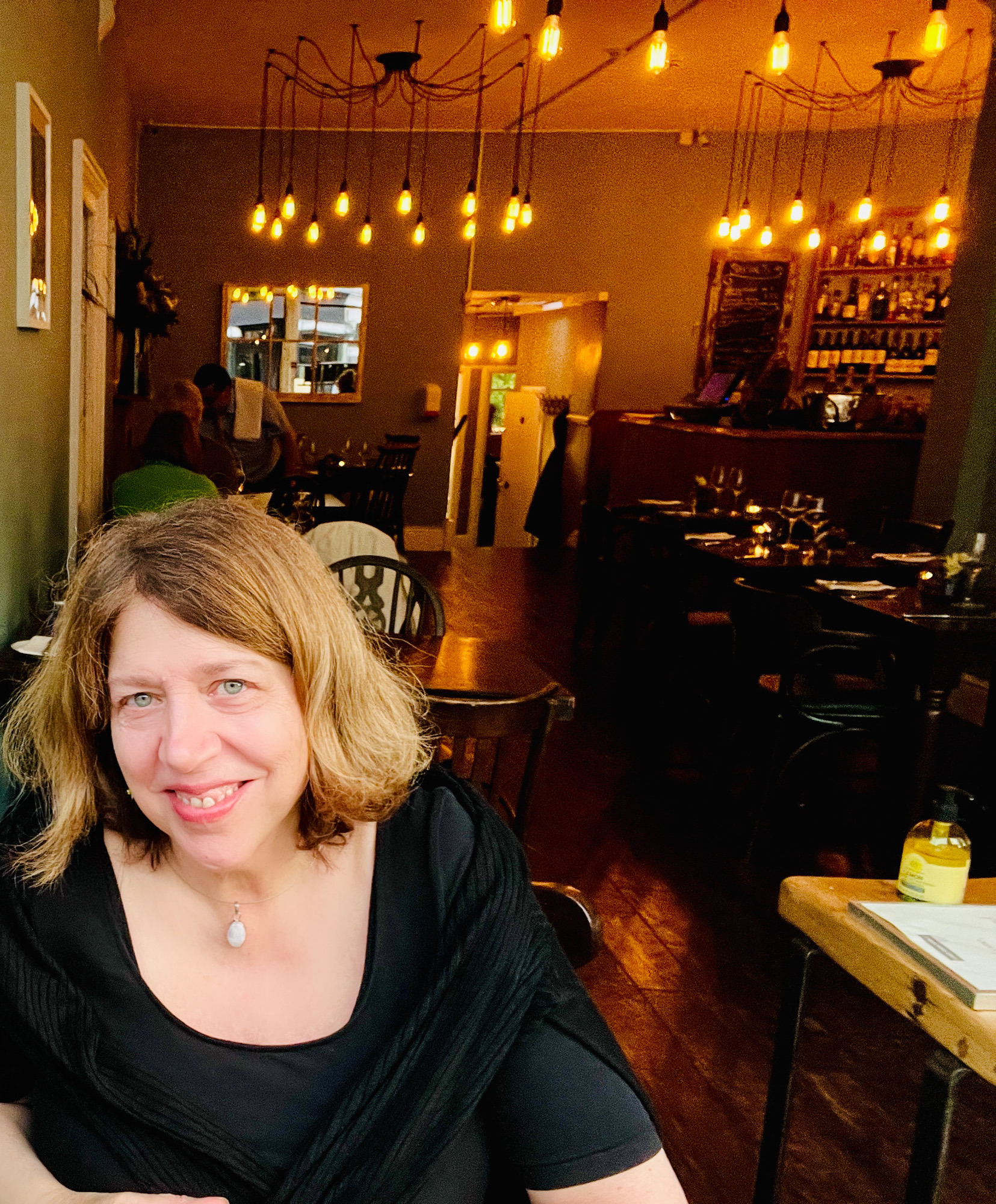|
Self-Portrait with Bandaged Ear and Pipe, 1889
Keep this object carefully. ~Van Gogh
Not to shock the prostitute whose flower
you'd recently splashed, poppy red
already crusting on its crown. Not because Ménière's worm
bore its way into your mind or how the paint you drank
from the brush jar drew you down its dim well. Not that you sliced
your left ear with a razor when Theo told you
he was to marry Jo Van. Not even a recent theory, that in a fit
of anger Gauguin flicked off the lobe with his rapier
and blood splattered carmine, stippling your shoes already confused
with too much pigment.
It's still a mystery sticky as tallow. Believe what you wish.
Perhaps as Levis suggested, the woman placed the ear
on a windowsill to listen for her. Whether to comfort or terrify,
he didn't say, but yesterday,
as I walked the moss-ridden path, I saw a single calla lily
listening from the forest floor, sheltered by the pines
and surrounded in jade, looking white as an apology.
Published in Poetry Wales
Only the Moon Holds Her Exits and Entrances, Muzot 1921
I don’t believe what my body says –
the whole of me too tall for most men,
my voice a wounded animal. A body that holds
forks and knives
and pokers for the fire – blue coals
alive as dusk.
I don’t believe its cries and moans
and cracks of thunder hushed between the lips.
If an orchid transforms from hard bulb
by the grace of rain and light, let it find
flowering in the moist ground
of your silence. Let it bloom not
from photosynthesis but desire.
And let this body enter holding love
under the tongue –
its sublingual light. A faint disc against
the shift to rose, dissolving and lighting
this throat.
Let the body be
the beautiful, dark butterfly
coming significantly and expressly
toward you from the dimly shining windows
in a ballroom of guests. Let me slip between
the cracks of your closed door
to be touched
the way the butterfly holds
your finger
landing soft as sorrow
as rain
Italicized portions are Rilke’s
Published in Another Chicago Magazine
Frida’s Glove, Chateau Muzot, Summer 1922
The poet ... Rilke enjoyed donning his maid’s suede gloves and dusting ...
furniture in the wee hours of the morning like caressing the body of a lover.
"After this," he said, "there’s nothing that you do not know!"
~ The Poetics of Space, Bachelard
There was a candle burning inside my brow. I could not pinch its
flame so I crept out of the fevered bed to the forest of our floors and
their cool against my feet. Green and green again all emerald like
buttons sewn on our felt tree. It was just a hand at first, moving up
the velvet drapes, independent as a whistle from nowhere and then
the thin figure of a man emerged slightly from this stage, the fingers
and thumb gliding up the drape’s edge. Something at the wrist. A
thickness between the fingers, like a new skin, a fourchette with a
slight webbing that layered the delicate hand. My suede glove touched
an edge then moved slowly up the plaited cord, then down. A finger
drew the line of its own profile from forehead to neck and I felt as if
he traced my own throat, down to the clavicle then up again to the
edge of my left lobe. Shivering, the moon shook too, so sewn to the
poet’s mind, that the fabric of our scene tilted, then buried itself in
the night’s seam.
* Frida Baumgartner was Rilke’s housekeeper from 1921 until
1926 just before he died.
Published in Plume
|

|